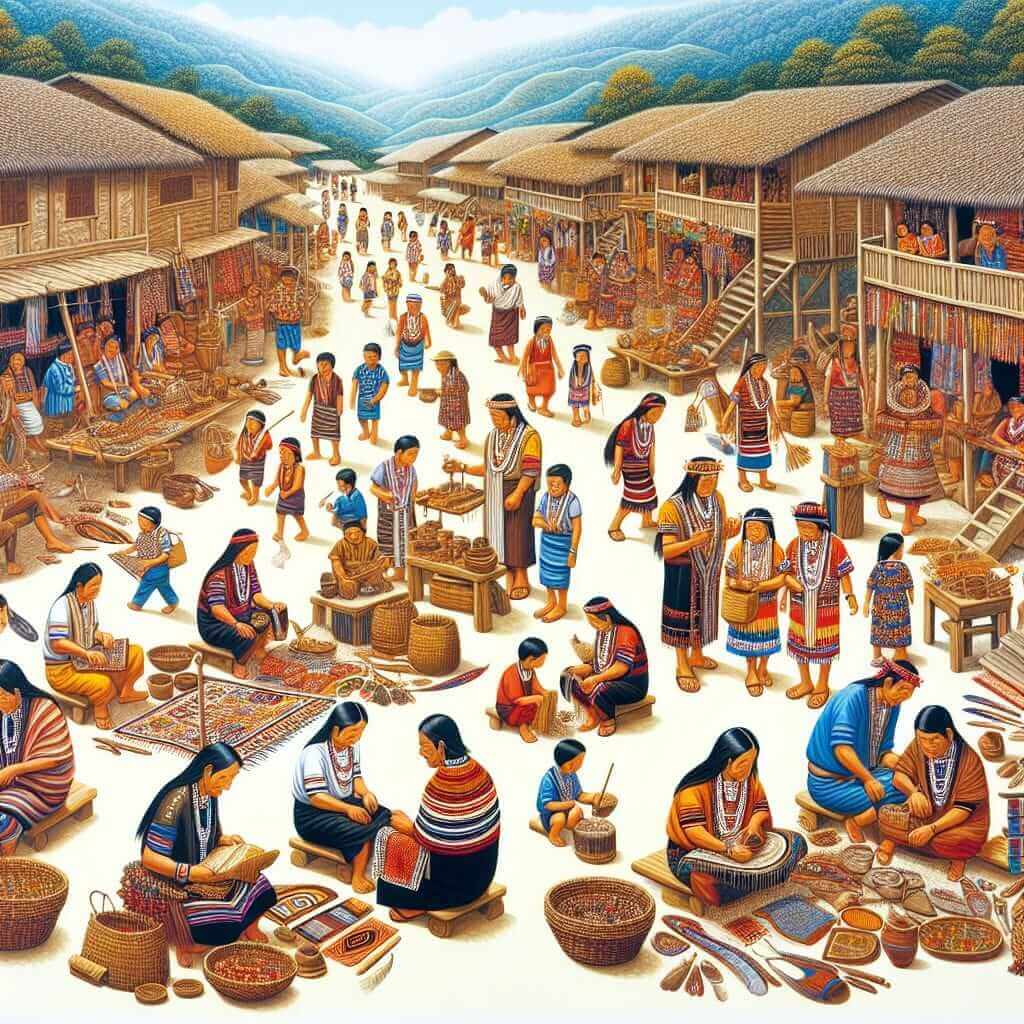The protection and nurturing of indigenous cultures is a recurring theme in the IELTS Writing Task 2 exams. This topic has gained prominence as the world becomes increasingly globalized, leading to the potential erosion of distinct cultural identities. In the past, IELTS prompts have frequently touched upon cultural preservation, reflecting its significance in contemporary discourse. The likelihood of similar topics continuing to appear in future exams remains high due to ongoing global concerns about cultural homogenization. Here are two past prompts related to this theme:
- “Preserving cultural traditions is essential for ensuring a nation’s identity. To what extent do you agree or disagree?”
- “With the rise of global media, local cultures are being overshadowed. Discuss the advantages and disadvantages of this trend.”
From these examples, we can derive a relevant topic for our model essay.
Some people believe that preserving indigenous cultures is essential for maintaining global diversity. Others, however, feel that in the face of modernization, these cultures should adapt and change. Discuss both views and give your opinion.
Analysis of the Essay Prompt
Understand the Prompt:
This prompt asks you to discuss both perspectives on the preservation of indigenous cultures. One side emphasizes preserving these cultures to maintain global diversity, while the other side advocates for adaptation in response to modernization.
Keywords and LSIs:
- Preserving indigenous cultures
- Global diversity
- Modernization
- Cultural adaptation
- Cultural homogenization
Objectives:
- Convey a clear understanding of both arguments.
- Offer your opinion based on well-rounded reasoning.
- Ensure coherence and cohesion throughout the essay.
Sample Essay
In recent years, the debate around the importance of preserving indigenous cultures versus encouraging their adaptation to modernity has intensified. While some argue that maintaining these cultures is crucial for global diversity, others believe that adaptation is necessary for survival. This essay will discuss both views and present my perspective.
On the one hand, proponents of preserving indigenous cultures emphasize their intrinsic value and the richness they add to the global tapestry. These cultures offer unique worldviews, languages, traditions, and knowledge systems that contribute vastly to human civilization. For instance, many indigenous communities possess ancient wisdom regarding sustainable living and environmental conservation. If these cultures are eroded, we risk losing not only their diversity but also their invaluable contributions to ecological balance and ethical living. Hence, preserving them ensures that future generations have access to a wide array of cultural expressions and wisdom.

On the other hand, the argument for adaptation holds that cultures must evolve to remain relevant in a rapidly changing world. In the face of globalization and technological advancements, rigid adherence to traditional lifestyles can hinder progress and integration. Adaptation allows indigenous cultures to retain their core values while embracing beneficial aspects of modernity. For example, incorporating modern education and healthcare within these communities can enhance their quality of life while still preserving cultural heritage. This dynamic approach can prevent the marginalization of indigenous populations and enable them to thrive in contemporary society.
In my opinion, a balanced approach that respects the essence of indigenous cultures while promoting their adaptation to modern contexts is ideal. Preservation and adaptation are not mutually exclusive; rather, they can complement each other. Efforts should focus on safeguarding essential cultural elements and traditions, such as language and rituals, while allowing for selective integration of modern practices that enhance well-being and economic prospects.
In conclusion, both preservation and adaptation have their merits. While preserving indigenous cultures is vital for maintaining global diversity, enabling these cultures to adapt ensures their relevance and survival in today’s world. A synergistic approach that respects traditional values while embracing beneficial modern advancements is the best way forward.
Word Count: 336
Key Notes for Writing About This Topic
Vocabulary and Grammar Tips:
- Use a range of lexical resources specific to culture and globalization (e.g., “cultural homogenization,” “heritage,” “modernization”).
- Employ complex sentences to convey intricate ideas (e.g., “While some argue that maintaining these cultures is crucial for global diversity…”).
- Ensure coherence and cohesion with cohesive devices (e.g., “On the other hand,” “In my opinion”).
Essential Vocabulary:
- Intrinsic (adj.) /ɪnˈtrɪnsɪk/: belonging naturally; essential.
- Erosion (n.) /ɪˈroʊʒən/: the gradual destruction or diminution of something.
- Mosaic (n.) /moʊˈzeɪɪk/: a mix of diverse elements forming a coherent whole.
- Conservation (n.) /ˌkɑːnsərˈveɪʃən/: the act of preserving something valuable.
- Marginalization (n.) /ˌmɑːrdʒɪnələˈzeɪʃən/: the process by which a group is pushed to the edge of society.
Conclusion
In essence, the preservation of indigenous cultures is a critical issue that necessitates careful balancing between maintaining tradition and embracing beneficial aspects of modernity. Topics related to this theme are likely to persist in future IELTS exams due to their global relevance. Other potential essay prompts in this realm might include:
- “How can modern technology aid in the preservation of indigenous cultures?”
- “Discuss the impact of tourism on preserving indigenous cultures.”
- “What role does education play in maintaining indigenous cultural identities?”
By focusing on these key aspects, candidates can effectively prepare for similar topics in future IELTS writing exams.